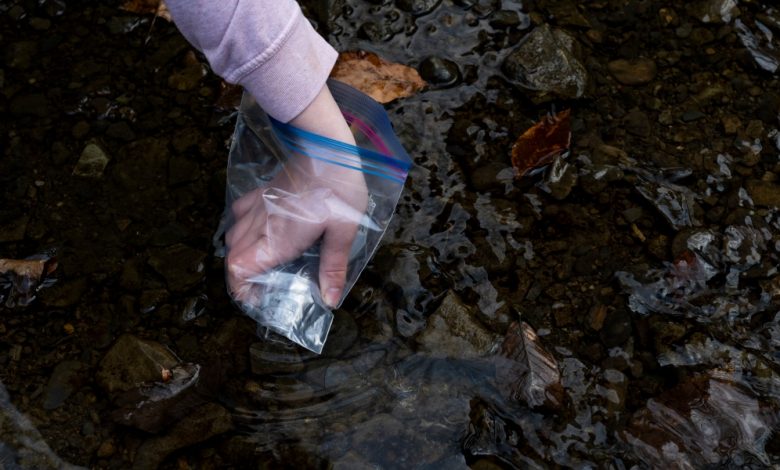Norfolk Southern promises safety improvements after Ohio train derailment

The announcement came on the same day that the governor of Pennsylvania announced that the company had agreed to pay millions of dollars to help cover the state’s response and recovery costs.
The company said it will evaluate the distance between “hot bearing” detectors — currently an average of 22 kilometers (13.9 miles) on its core network — and promised to investigate any location where the distance exceeds 15 miles (24 kilometers ) and they deploy more detectors where practicable.
Norfolk Southern “intends to add approximately 200 hot storage detectors to its network, with the first being installed on the western approach to eastern Palestine,” according to the company’s announcement, which came amid proposals from President Joe Biden’s administration and Congress for improvements security after the last month derailment occurs.
The National Transportation Safety Board said the crew operating the train that derailed on February 3 outside of eastern Palestine, Ohio, near the Pennsylvania border, received a warning from one such detector but were unable to stop the train before more when three dozen cars got out of the lanes and caught fire.
Half of the town of about 5,000 people had to be evacuated for days as emergency crews intentionally burned toxic chemicals in some of the derailed cars to prevent an uncontrolled explosion, leaving residents with lingering health concerns. Government officials say tests have found no dangerous levels of chemicals in the air or water in the area.
A week ago, a safety advisory from the Federal Railroad Administration called on railroads to re-examine the use of such detectors and ensure they are inspected often enough by trained staff and that there are safe standards in place for determining when a train or railcar has stopped must be parked when a warning is triggered. The railway administration said overheated bearings are likely to have caused at least four more derailments since 2021, and called for ways to analyze temperature trends from the sensors to spot potential problems earlier.
Norfolk Southern also said it will work with manufacturers to expedite testing and deployment of new “multi-scan” detectors, capable of scanning a larger cross-section of a rail vehicle’s bearings and wheels. It also pledged to work with other railroads to review standards and practices, reassess the temperature that triggers an alarm and response to such alarms, and analyze data for patterns that could warn of safety problems.
Also announced Monday in Norfolk Southern’s six-point safety plan was the installation of more acoustic bearing detectors, which analyze the acoustic signature of vibrations within the axle to identify potential problems. Norfolk Southern said it has five such detectors deployed and will add 13 more on busy routes.
The company also said it is working with Georgia Tech Research Institute to develop more advanced safety inspection technologies and will join the railroad administration’s “confidential close call reporting system,” also citing its own program that “encourages railroad workers to to speak up when they see something like this is unsafe.”
Transport Secretary Pete Buttigieg has proposed a range of safety improvements, including resurrecting a rule mandating improved, electronically controlled brakes on certain trains filled with flammable liquids, dubbed “highly hazardous flammable trains”, and possibly expanding which ones Trains fall under this designation. The industry is pushing to postpone major changes until the Transportation Security Administration completes its investigation in a year or more.
Ohio’s two US senators last week introduced legislation that would require railroads to prepare contingency plans and report to emergency commissions what hazardous materials are being shipped through their states. Other regulations would maintain a two-person crew size and require regulators to set limits on train size and weight.
U.S. Senator Bob Casey, who backed the legislation, said Monday that preventing future derailments would require action “far beyond the steps Norfolk Southern outlined today,” and urged the company and other rail companies to approve the proposal of the Senate “on board”.
Professor Allan Zarembski, who leads the University of Delaware’s rail engineering and safety program, previously said overheated bearings cause only a handful of the more than 1,000 derailments a year, and he questioned the value of a “knee-jerk response” amid big politicians’ pressure. On Monday he called Norfolk Southern’s hot camp plan “a good incremental step forward” to get rid of a problem he repeated that was “very rare”.
On Saturday afternoon, 28 cars on a Norfolk Southern freight train derailed in Ohio between Dayton and Columbus, triggering a temporary shelter-in-place order. However, officials said the derailment did not involve any hazardous materials, although the 212-car train also had cars containing liquid propane and ethanol that did not derail.
In Pennsylvania, Gov. Josh Shapiro said Monday that Norfolk Southern has pledged millions of dollars to cover the cost of responding and recovering in Pennsylvania after last month’s derailment. The company previously announced more than $1 million for Ohio to replace firefighting equipment used in responding to the burning wreckage, plus $1 million for East Palestine and more than $1.2 million for evacuation costs for nearly 900 families and businesses.
The company has said it is “committed to coordinating the cleanup project and paying the associated costs” and wants to ensure that residents of eastern Palestine and the natural environment recover.
Learn how to navigate and build trust in your organization with The Trust Factor, a weekly newsletter exploring what leaders need to succeed. Login here.



